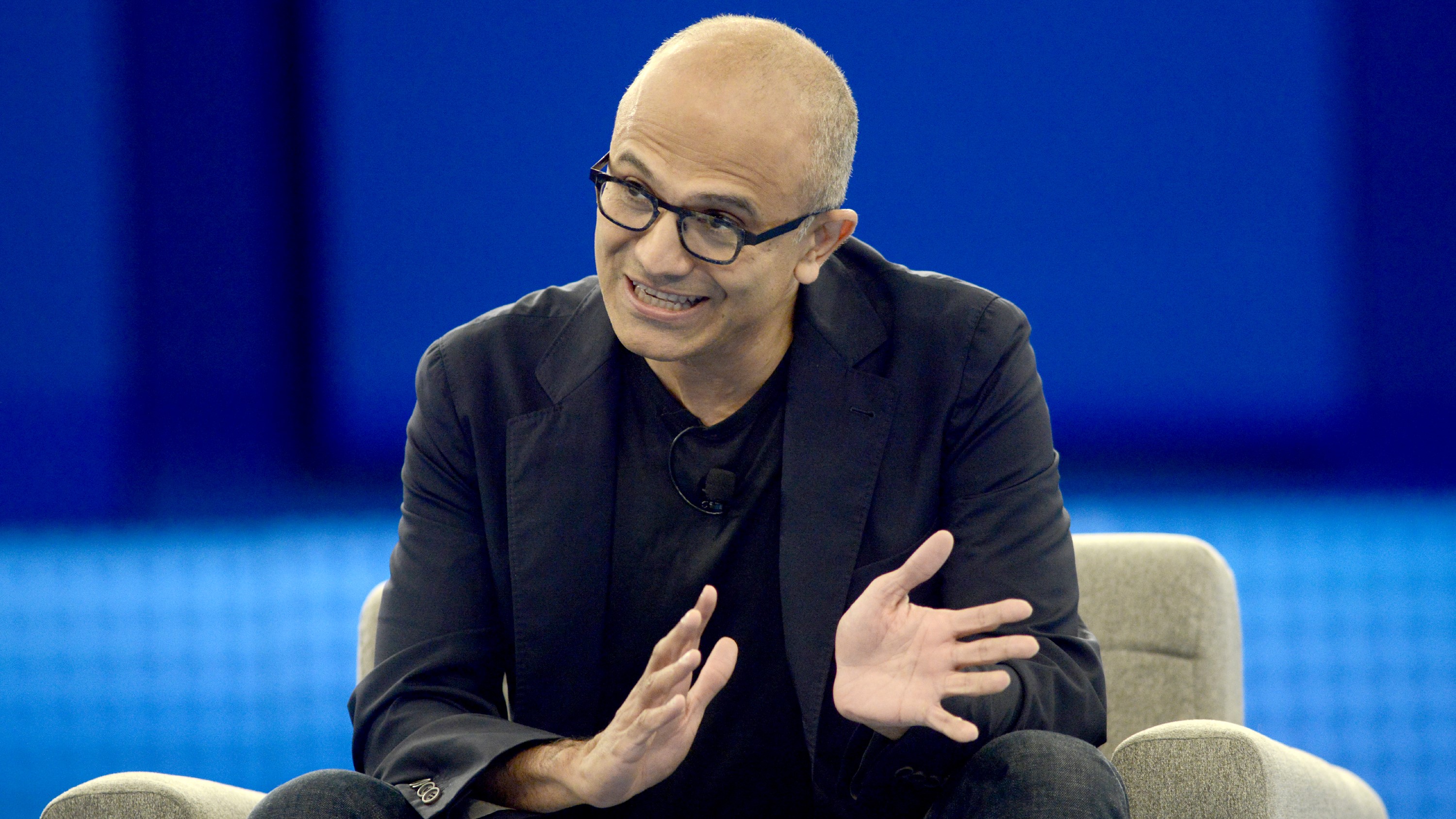Microsoft CEO says he'd 'love to get rid' of console exclusives but it's all Sony's fault, your honor
"I have no love for that world."

Microsoft CEO Satya Nadella is one of the many suits answering questions in court, as the US Federal Trade Commission attempts to block the software giant's acquisition of Activision Blizzard for $65 billion. Nadella was asked about Microsoft's strategy in cloud gaming, its ambitions within videogames and, at one point, the much-discussed value of exclusive titles.
"If it was up to me I would love to get rid of the entire exclusives on consoles," said Nadella. "But that’s not for me to define, especially as a low share player in the console market. The dominant player there has defined market competition using exclusives, so that’s the world we live in. I have no love for that world."
It is clear from the context of these hearings that when Nadella says "dominant player" he's referring to Sony, with Microsoft's lawyers having a strategy of putting on the 'poor me' face while pointing to PlayStation's dominance in most global markets. PlayStation has of course always had a focus on exclusives, and grown into a formidable first-party developer as well as having the money to bankroll third-party exclusives (with oft-extraordinary results such as Bloodborne). Even if many of its titles are now finding their way to PC years later, a big selling point for PlayStation consoles remains the exclusive titles.
Needless to say, when PlayStation's head Jim Ryan was giving (pre-recorded) testimony, he said Xbox and Game Pass was actually the big problem here! Ryan said "all publishers unanimously do not like Game Pass because it's value destructive", that Sony had to "massively" invest in firstparty exclusives just to keep the wolves from its door, and added for good measure that it wasn't in Microsoft's interests to keep Activision Blizzard games on PlayStation. Ryan really is a total pro, and as exhibit A I present this exchange (reported first by The Verge):
Microsoft lawyer: If you were running Xbox, would you recommend making Call of Duty and other Activision games exclusive to Xbox and PC?
Ryan: That’s a hypothetical question that I don’t wish to answer.
Microsoft lawyer: So you don’t get to answer?
Keep up to date with the most important stories and the best deals, as picked by the PC Gamer team.
Ryan: I don’t have enough knowledge to answer that question.
Masterful. This is the big crux of the hearing, whether Microsoft will just do and say anything to get the deal through and then, afterwards, pull key Activision Blizzard content from PlayStation in an effort to destabilise its major competition. As FTC lawyer James Weingarten put it: "The harm here is we think is substantial in locking up Activision content."
When asked whether Microsoft would intend to keep Activision Blizzard games away from PlayStation, for his part Satya Nadella said "it makes no economic sense and no strategic sense."
Nadella's argument was classic Microsoft: it wants Activision Blizzard games available on as many platforms as possible, just like its other software products. "I love their console games, I love their PC games and I particularly love their mobile games," said Nadella, a nod to Microsoft's lack of strength in the latter area and part of the Activision Blizzard deal being mobile specialists King.
That led to one of the few laughs in these hearings. The judge interrupted to ask Nadella if he plays King's flagship game, Candy Crush. Nadella replied "I do", prompting some amusement in the court, before going on to say he played Call of Duty too.

Rich is a games journalist with 15 years' experience, beginning his career on Edge magazine before working for a wide range of outlets, including Ars Technica, Eurogamer, GamesRadar+, Gamespot, the Guardian, IGN, the New Statesman, Polygon, and Vice. He was the editor of Kotaku UK, the UK arm of Kotaku, for three years before joining PC Gamer. He is the author of a Brief History of Video Games, a full history of the medium, which the Midwest Book Review described as "[a] must-read for serious minded game historians and curious video game connoisseurs alike."

